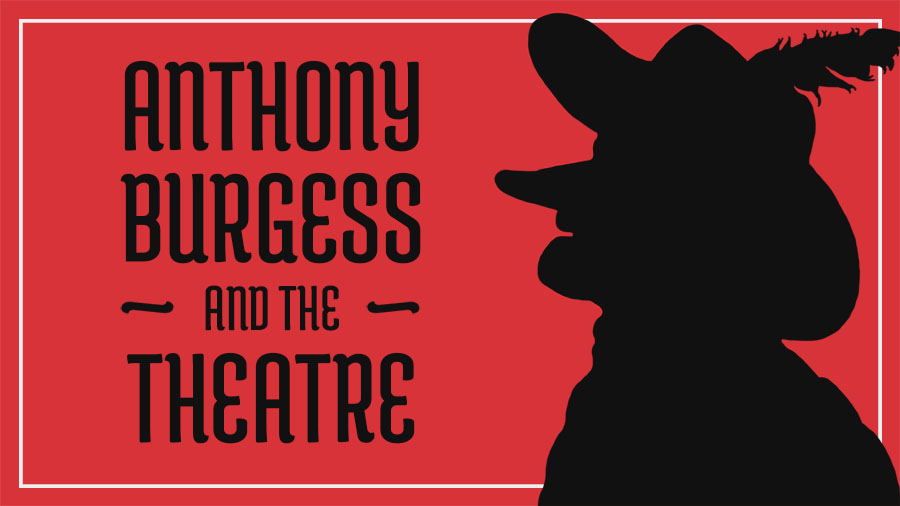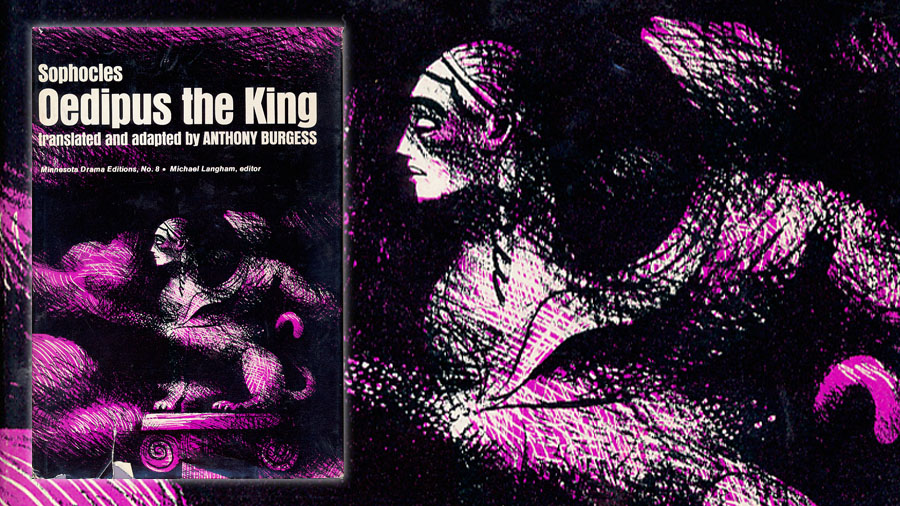Anthony Burgess and the Theatre: Oedipus the King
-
Will Carr
- 28th October 2022
-
category
- Blog Posts

Anthony Burgess’s second commission from Michael Langham, the artistic director of the Tyrone Guthrie Theater in Minneapolis, was an adaptation of Oedipus the King by Sophocles. He had recently completed the novel MF, whose incest theme also reflected Burgess’s interest in Freud and Oedipus. He had little knowledge of Greek and a hazy knowledge of ancient theatre, but Langham asked him to take an unclassical approach. Burgess describes his translation in the preface to the published text as having been written ‘in no spirit of precise scholasticism but solely out of a desire to create a version suitable for a particular theatre and a particular director.’ The adaptation is free and daring, and manages to introduce distinctive material without compromising the dramatic content of the original. The play was first performed in 1972 and the text was published in the same year.
One of the new elements Burgess brought to the play was the direct presentation of violent action, such as the scene in which Oedipus blinds himself on stage. This is a striking departure from classical Greek drama, which did not present violent events in view of the audience. Burgess also introduced an element of what he calls ‘reasonableness’ to the play, so that Oedipus, once he is blind, is rendered unable to speak, and other forces take over.
Another interesting aspect of the play is Burgess’s incorporation of an invented language into his theatrical text. This new language is given to the chorus, who sing original settings of Burgess’s text, composed by Stanley Silverman. According to Burgess, the idea came from Michael Langham:
Langham wanted the chorus to sing, not just recite, and had the idea of their singing in a language very remote, to suggest the antiquity of the legend. The remotest language possible was Indo-European (which Langham’s typist rendered as ‘Indoor European’), and this meant dragging out of the more scholarly etymological dictionaries those hypothetical roots marked with an asterisk.

Burgess’s technique was to find roots of words from cognate languages and invent endings for the words, which he describes as ‘hypothetical and highly dangerous.’ A letter from Burgess is published as an appendix to the text, in which he says that the chants should not be printed as ‘they only work auditorily and must not be chewed over by captious scholars.’ The language is not extensive, but when backed by the unusual instrumentation specified — ‘a shawm, a bull-roarer, ancient drums’ — it has alienating and unsettling effects. Burgess writes that people sat on the edges of their seats as though attending a murder trial or a revivalist meeting.
After the success in Minneapolis, Burgess and Silverman converted the music from Oedipus the King into a cantata, and Burgess wrote a narrative part to be recited by himself. The cantata ran for approximately 30 minutes, and in performance it was presented with The MND Show, a Silverman score for A Midsummer Night’s Dream of similar length, for which Burgess also wrote the text. This unlikely production was presented as a one-off performance at the Whitney Museum in New York in 1973.
Burgess’s translation and adaptation of Oedipus the King is an unusual and ambitious reworking of Sophocles, and it has been performed all over the world. The first radio presentation was broadcast by BBC Radio 3 on 25 February 2017 to mark the centenary of Burgess’s birth, in a production starring Christopher Eccleston (pictured above) and Fiona Shaw and Don Warrington. Silverman’s music was performed by the BBC Philharmonic Orchestra.



